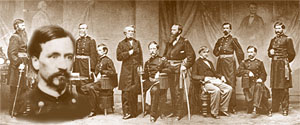
|
1865 - TRIAL OF LINCOLN'S ASSASSINS:
Colonel Henry Lawrence Burnett was called to Washington by Secretary Stanton upon the assassination
of President Lincoln. He managed the investigation for Stanton, and served as one of the special
judge advocates during the trial. Afterwards, he prepared the materials for the Library of Congress. He was breveted
as Brigadier General at the end of the Civil War.
Gen. Henry Lawrence Burnett
Timeline,
Bios,
Military Career,
Law Career,
Speech
|
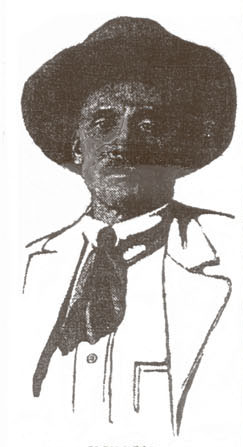
|
1825 - NEWSPAPER ARTICLES ABOUT THE WILD WEST:
Jack Bell was the western "man's man." He had done much of everything in his lifetime, and he was known, and loved,
at all the important mining camps at the turn of the twentieth century.
With a background in mining engineering, he
went out to try his luck in mining, and ended up winning and losing fortunes from Alaska down to Central America. When he
needed money, or when the weather was against prospecting, he wss a newspaperman, at one point owning the Canon City Cannon (Colorado)
with his first wife Catharine.
One of his early front page stories was "The Fight with Ore Thieves in the Depths of the
Independence." That was from the perspective of one of those doing the fighting.
By the early twenties he was settled, when not prospecting, in the area of Reno Nevada. His articles were often front
page stories, replete with anecdotes from his long career. He wrote about the miners' lives, the humble burro, the
always to be feared sidewinder and, when he wasn't writing about those things, he was going into raptures over the birds
which he saw with a keen observer's eye.
|
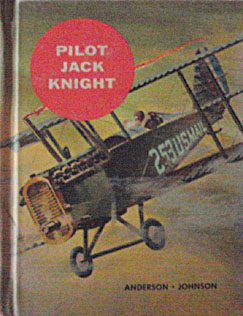
|
1825 - EARLY AIRMAIL PILOTS:
x
|
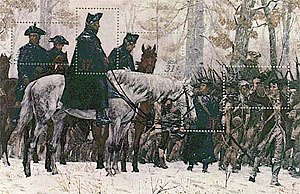
|
1788 - VALLEY FORGE:
Colonel Henry Bicker commanded the Second Pennsylvania Continental Line during the terrible winter of
1888. His Orderly Book gives a glimpse into the life of the regiment.
|

|
1802 - MEDICAL ELECTRICITY:
Dr. T. Gale's book, published in 1802 and owned by Henry Livingston's older brother Gilbert,
describes how to capture electricity with a lightning rod, store it, and use it as a
miracle cure for what ails you from gout to headaches. Page through the book, or jump to a
page from the index.
|
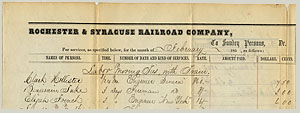
|
1836 - EARLY RAILROADS:
Henry B. Gibson was the son-in-law of Colonel Henry Bicker and the father-in-law of General Henry Livingston Lansing.
One of the richest men in western New York, he was president of the Auburn and Rochester Railroad, as well as
the Rochester and Syracuse Railroad, which was merged with others to form the New York Central.
Gibson was also Cashier of the Ontario Bank, located in Canandaigua, and was president of the
Ontario Canal Company, which led to Port Gibson being named for him, as well as Gibson Street in
Canandaigua.
Railroads
Auburn and Rochester,
A&R Deeds,
Rochester and Syracuse
New York Central
Henry Bicker Gibson
Biographies,
Treaty with Seneca Indians
|
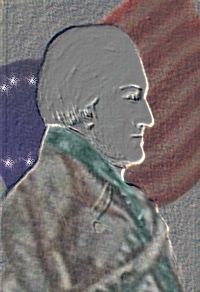
|
1775 - DIARY OF INVASION OF CANADA:
When the news came of the British assault on Boston,
New York realized that the war was inevitable. The state determined to create a new regiment of soldiers,
the 3rd New York, and Henry's brother Gilbert was able to convince the politicians in Albany to give the
position of Major of the new regiment to Henry. Leaving behind his new wife and daughter, Henry joined
the regiment, which was assigned to invade Canada and take Montreal from the British. During Henry's
enlistment, he kept a journal of his service from August to December, 1775.
Henry Livingston, Jr.
Music Manuscript,
The Duenna
Book,
Slideshow,
The Man
|
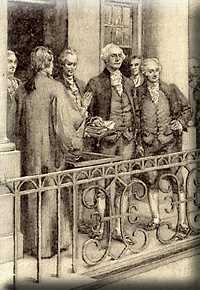
|
1789 - WASHINGTON'S INAUGURATION:
The inauguration of George Washington as the first president of this country took place in New York City, on a balcony overlooking what is now the financial district. On that important day in our history, the oath of office was administered to President Washington by Robert R. Livingston, Jr., Henry's cousin and the owner of Clermont.
|
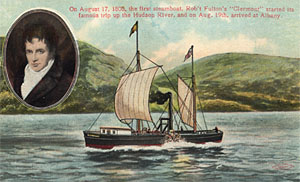
|
1807 - THE CLERMONT STEAMBOAT:
"I left New York on Monday at one o'clock, and arrived at Clermont, the seat of Chancellor Livingston, at one o'clock on Tuesday time, twenty-four hours; distance, one hundred and ten miles. On Wednesday I departed from the Chancellor's at nine in the morning, and arrived at Albany at five in the afternoon: distance, forty miles; time, eight hours. The sum is one hundred and fifty miles in thirty-two hours, - equal to near five miles an hour." Robert Fulton
The sight and sound of the Clermont, with its steam engine propulsion, must have brought all of Locust Grove to the riverbank on that August 1807 afternoon.
|
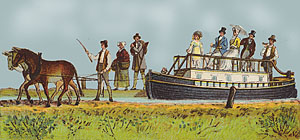
|
1825 - ERIE CANAL:
Initiated by Henry Livingston's brother-in-law, Jonas Platt, the Erie Canal was a recurring vision of the future for Henry, a vision he shared frequently with his son and grandson. The sight of the cavalcade of boats passing by Locust Grove, celebrating the Canal's opening in 1825, must have brought deep satisfaction to the 75 year old Henry.
|
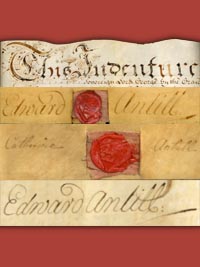
|
1767 - EDWARD ANTILL'S GRAPE EXPERIMENTS:
Edward Antill experimented with the cultivation of vineyards to produce a quality American wine,
winning the first premium from the Royal Society of Arts as the colonist who, within seven years,
was the first to produce five tons of red or white wine of acceptable quality.
Son-in-law of Governor Morris
Son, Colonel Edward Antill,
Col. Antill's correspondence with Washington
Granddaughter's husband, Arthur Tappan, Anti-slavery Society
|
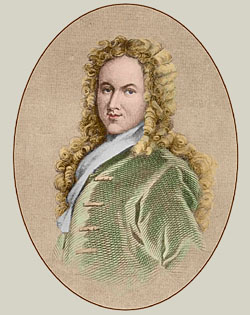
|
1738 - LEWIS MORRIS, COLONIAL GOVERNOR OF NJ:
Lewis Morris (1671-1746) was Chief Justice of the American Colonies in 1720, and became Governor of New Jersey
in 1738. It was his grandson, Lewis Morris, who signed the Declaration of Independence. Governor Morris was
a poet, and co-wrote the first play produced in America.
|

|
1824 - LAFAYETTE VISITS POUGHKEEPSIE:
As part of his tour of America, the elderly Lafayette's tour stopped in Poughkeepsie, where he was welcomed and breakfasted by the town's leading characters. His welcome speech was given by the son of Henry's brother Gilbert, Colonel Henry Alexander Livingston, then living in Henry Sr.'s former home on the Hudson, past which Lafayette's steamboat, the James Kent, had passed in the night.
|
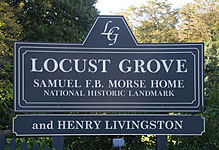
|
LOCUST GROVE:
The history of the Locust Grove estate, first the property of Henry Livingston, Jr., and then the property
of Samuel Finley Breese Morse.
Food,
Clothing,
Entertainments,
Travel,
Medicine
|
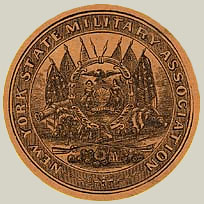
|
1854 - MILITARY ASSOCIATION OF NEW YORK:
The Military Association of New York was created as a social and professional organization devoted to
the well-being of military soldiers in New York. Colonel Henry Livingston Lansing and his brother,
Major Henry Seymour Lansing, were both part of the creation of this organization. Both were breveted
as Brigadier Generals at the end of the Civil War.
Gen. Henry Livingston Lansing
Civil War Record,
Summer Home
Gen. Henry Seymour Lansing
Civil War Record
|
AND CHECK OUT THE GENEALOGY MAP
|

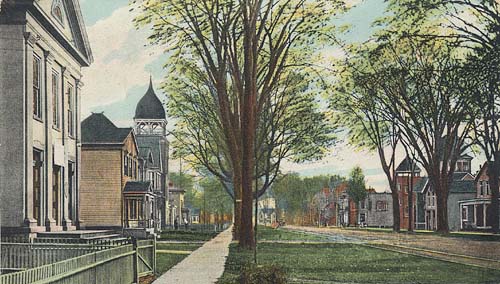





















![]() Copyright © 2007, Mary S. Van Deusen
Copyright © 2007, Mary S. Van Deusen